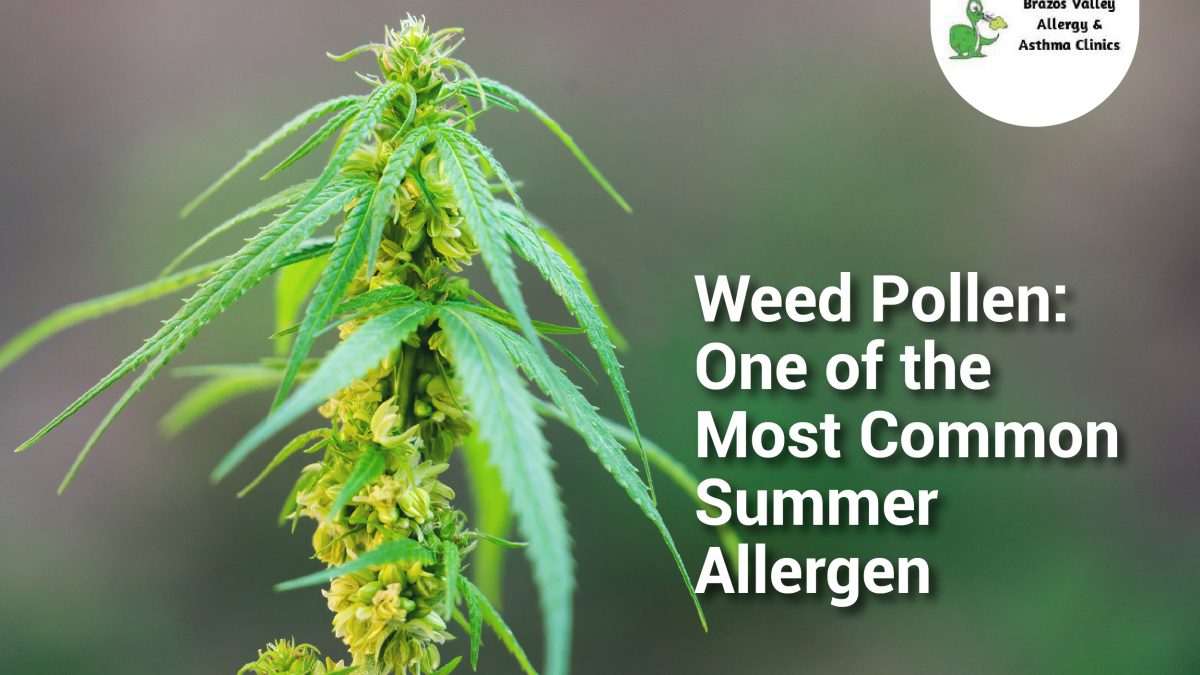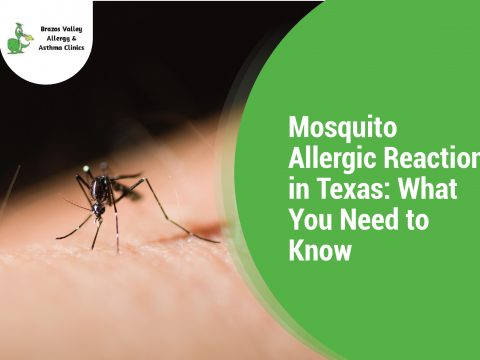- 979-485-9287
- office@bvallergy.com
-
 979-251-7804
979-251-7804
Weed Pollen: One of the Most Common Summer Allergen

Ways to Significantly Reduce Dust Mites
April 19, 2021
Tips for Managing Your Asthma in the Summer
May 18, 2021Overview
Does weed pollen trigger your allergies?
Summer means warmer temperatures and this usually entails more outdoor activities. But all the summer fun might be cut short with all the sneezing and sniffling caused by weed pollen. Every spring, summer, and fall, plants release tiny amounts of pollen that travels in the wind. This pollen from weeds and grasses causes allergic reactions. In fact, one of the most common triggers of seasonal allergies is weed pollen.
Plants that Trigger Seasonal Allergies
Hundreds of species of plants release their pollen into the air every year. This causes allergic reactions in many people. Certain pollen can even survive the winter and cause allergies all year round. Here are the different kinds of weed pollen that you should be mindful of.
Ragweed
Ragweeds are soft-stemmed weeds that grow all over the United States. There are 17 species of ragweed in North America alone. These plants are common in rural areas and open spaces that get plenty of sunlight. Ragweed pollen is one of the most common causes of seasonal allergies in the country. Many people have adverse reactions when they inhale this pollen.
Pigweed
Common pigweed is found throughout the world, including some regions in the United States. You can find them in wild landscapes and roadsides. This pollen commonly induces asthma, allergic conjunctivitis, and allergic rhinitis or hay fever.
Sagebrush
Sagebrush is a pesky weed that blooms in late summer and can trigger allergic reactions for some people. Its pollen is very light and small, so the wind can easily spread this allergen for miles around.
Lamb’s Quarters
These plants are often invading lawns and gardens. Much like the other plants mentioned, this pollen can easily be carried across the wind for miles. Even if you take good care of your lawn, you might still get an allergic reaction from someone else’s garden who has a lambsquarter infestation.
English Plantain
This plant is common in regions with temperate climates. These can be found in lawns, cracks in pavements, fallow fields, and roadsides. This plant begins pollinating in April or early May and it continues throughout the remainder of summer and fall. The seeds become sticky when they are wet. And so, they can attach to the bottoms of shoes and feet of animals. Thus, humans and various animals help in spreading the seeds into new areas.
What Can You Do?
If you have a weed pollen allergy, you need to be wary of the pollen count in your area. The American Academy of Allergy, Asthma, and Immunology publishes pollen counts for individual cities in America. Limit your outdoor activities when the pollen count is high. This will lessen the probability of inhaling pollen. Immediately change and wash your clothes after spending time outdoors.
You can also take over-the-counter medications before the pollen season begins. The medicine will prevent your body from releasing histamine that can cause your symptoms.
Conclusion
If you have weed pollen allergies and over-the-counter medications are not cutting it anymore, you can contact an allergist for him to recommend some other treatment options for you. Dr. Paul Jantzi is a board-certified allergist in the Brazos Valley region. He provides different treatments and allergy tests to clients at numerous locations in the south-central Texas region. You can visit him at his office locations or call their contact numbers to set up an appointment.




